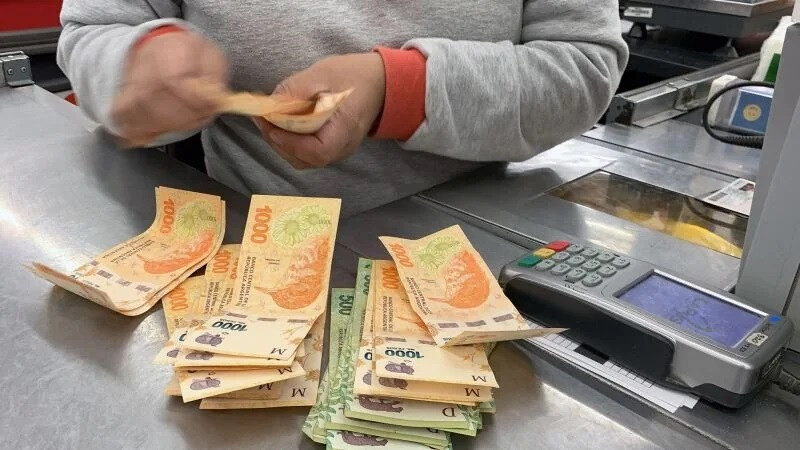
As the Argentine government announced a significant easing of restrictions on exchanging its peso for US dollars, neighboring Uruguay and Paraguay are closely watching the impending changes. Both countries anticipate an increase in Argentine tourists, expecting positive economic effects, while also expressing caution about potential risks from exchange rate fluctuations. Paraguay, in particular, is considering the possibility of its own currency, the guarani, weakening and is carefully monitoring the situation.
Emil Mendoza, president of the Asunción Exchange Houses Association in Paraguay, predicted that the increased purchasing power of the Argentine peso would lead more Argentines to cross the border to buy cheaper goods in Paraguay. He stated, "As the Argentine peso's value against the dollar rises, Argentines' purchasing power will increase. With improved purchasing power, more people are likely to come to our market to buy goods."
Conversely, Nazareno Sánchez, an economist at CPA Ferrere in Uruguay, foresaw a potentially positive impact on the Uruguayan economy from Argentina's easing of currency controls. He specifically anticipates a boost in the tourism industry, saying, "Any progress towards the stabilization and recovery of the Argentine economy can positively impact Uruguay through increased demand for goods and services, such as tourism."
However, Paraguay is also voicing concerns about the potential weakening of its own currency, the guarani, alongside the positive aspect of a stronger Argentine peso. Mendoza pointed out, "As of March, agricultural exports have decreased by 17%, and many traders are using their dollar savings, putting additional pressure on the guarani." He predicted that the current exchange rate of 7,983.94 guaranis per dollar could rise to 8,200 guaranis per dollar by the end of the year, anticipating no short-term dollar devaluation without artificial intervention from the Central Bank of Paraguay (BCP).
The Argentine government's official devaluation of its currency is expected to narrow the gap with the dollar's value in the black market, thus easing exchange pressures. 1 While this could trigger short-term inflation, analysts believe that if market expectations are managed stably and external factors remain stable, the inflation trend should not deviate significantly.
In the past, Uruguayans were accustomed to crossing the border to shop in Argentina, taking advantage of the high exchange rate difference. However, this benefit is expected to diminish significantly due to Argentina's recent measures. Nevertheless, Uruguay anticipates economic revitalization, particularly in its tourism sector, driven by an increase in Argentine travelers due to its geographical proximity. Economist Sánchez, however, maintained a cautious stance, saying, "It is still too early to say definitively."
Sánchez assessed, "The recent easing of exchange controls and changes in the exchange rate regime are significant progress within the stabilization plan the Argentine economy is undergoing." He explained, "The introduction of a new floating band system is a variation of a managed float, but by allowing the exchange rate to move within a specific range without the central bank defending a particular value, it reduces the burden on the central bank."
He further added, "One of the main reasons Argentina was relatively cheap was the large gap between the official and black market dollar. Many prices in Argentina were based on the official exchange rate, but tourists could access foreign currency at a much more favorable value through the black market." This price competitiveness enjoyed by Uruguayans is expected to disappear as this gap narrows due to the devaluation.
In conclusion, Argentina's easing of currency controls may bring a short-term positive effect of increased Argentine tourism to neighboring Uruguay and Paraguay. However, it also carries potential risks such as exchange rate fluctuations and the possible weakening of the Paraguayan guarani. Both countries are expected to closely monitor Argentina's economic policy changes, comprehensively analyze their impact on their own economies, and seek appropriate response measures.
[Copyright (c) Global Economic Times. All Rights Reserved.]




























